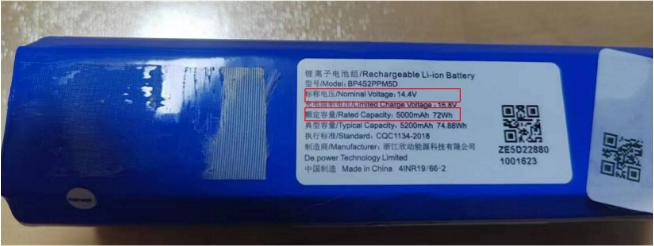kWh to mAh Conversion
Table of Contents

kWh to mAh Conversion
mAh is usually used to mark the capacity of batteries, and batteries marked with this type of capacity are generally used in lightweight appliances such as mobile phones and tablets. kWh is the basis for charging electricity for general users at home. How to convert between the two is a very common problem. This article attempts to explain kWh to mAh conversion to you.
Before Detail, Conclusion First
Before introducing the details, I would like to list the relevant calculation formulas and conclusions first so that you, as a professional, can just find the direct relationship between them without detailed explanations:
Battery Capacity(In Ah) = Battery Capacity(In mAh)*1000
Battery Capacity(In Ah) = Current(A)*Time(hour)
The calculation formula for Battery Capacity in Ah to Wh is as follows:
Battery Capacity(In Watt-hour) = Battery Voltage(V)*Battery Capacity(In Ah)
kWh = 1000*Wh
If you are not an expert in this area and want to understand their meaning in depth, please read the full text as follows:
A Practical Example

This is the lithium battery of my robot vacuum cleaner. In order to calculate kWh to mAh, we need to read the following important parameters:
Battery Voltage (sometimes written as rated voltage, nominal voltage). In the above picture, it can be read as 14.4V.
Then we need to read the Rated Capacity (sometimes written as battery capacity). In the above picture, it can be read as 5000mAh.
In fact, this battery has already told us that its capacity in Wh is 72Wh. We need to know how to calculate it.
The following formula ties Battery Capacity (In Watt-hour) and Battery Capacity (In Ah) together:
Battery Capacity(In Watt-hour) = Battery Voltage(V)*Battery Capacity(In Ah)
First of all, please note that the unit of Battery (in Ah) here is different from the unit of mAh, and what we read on the battery is 5000mAh. So we first need to convert mAh to Ah:
Battery Capacity(In Ah) = Battery Capacity(In mAh)/10000
= 5000mAh/1000
= 5Ah
Then we put 5Ah into the formula:
Battery Capacity(In Watt-hour) = Battery Voltage(V)*Battery Capacity(In Ah)
= 14.4V*5Ah
= 72Wh
Please note that the calculation is not complete here, because the unit of 72Wh here is Wh, we need to convert it to kWh as follows:
Battery Capacity(In kWh) = Battery Capacity(In Watt-hour)/1000
= 72Wh/1000
= 0.072kWh
In fact, we can simplify the above series of formulas:
Battery Capacity(In kWh) = Battery Voltage(V)*(Battery Capacity(In mAh)/1000)/1000
This is the kWh to mAh formula.
We found that many readers are not clear about the concept of kWh. If you want to know what kWh is, you can click the following link:
Reference: what is kWh
Extra Pratice for kWh to mAh
Let’s do an exercise: 1kWh of electricity is equivalent to how many mAh of battery? Assume that the battery voltage is 48V
Using our formula:
Battery Capacity(In kWh) = Battery Voltage(V)*(Battery Capacity(In mAh)/1000)/1000
Battery Capacity(In mAh) = (Battery Capacity(In kWh)/Battery Voltage(V))*1000*1000
Battery Capacity(In mAh) = 1kWh/48V*1000*1000
≈ 20833.33mAh
So in this example, the result of the 1kWh to mAh conversion is 20833.33mAh.
Summary of kWh to mAh
The above is a detailed explanation of kWh to mAh. Please note that kWh or Wh is the real benchmark for measuring battery power. When comparing battery power with mAh or Ah, the premise is that the voltages of the two comparisons are the same. If one battery is compared with another battery, their voltages are different, and their power needs to be converted to kWh or Wh for comparison. If you want to know more about the definition of Ah and the definition of Wh, please refer to the following article:
Reference: Ah to Wh

